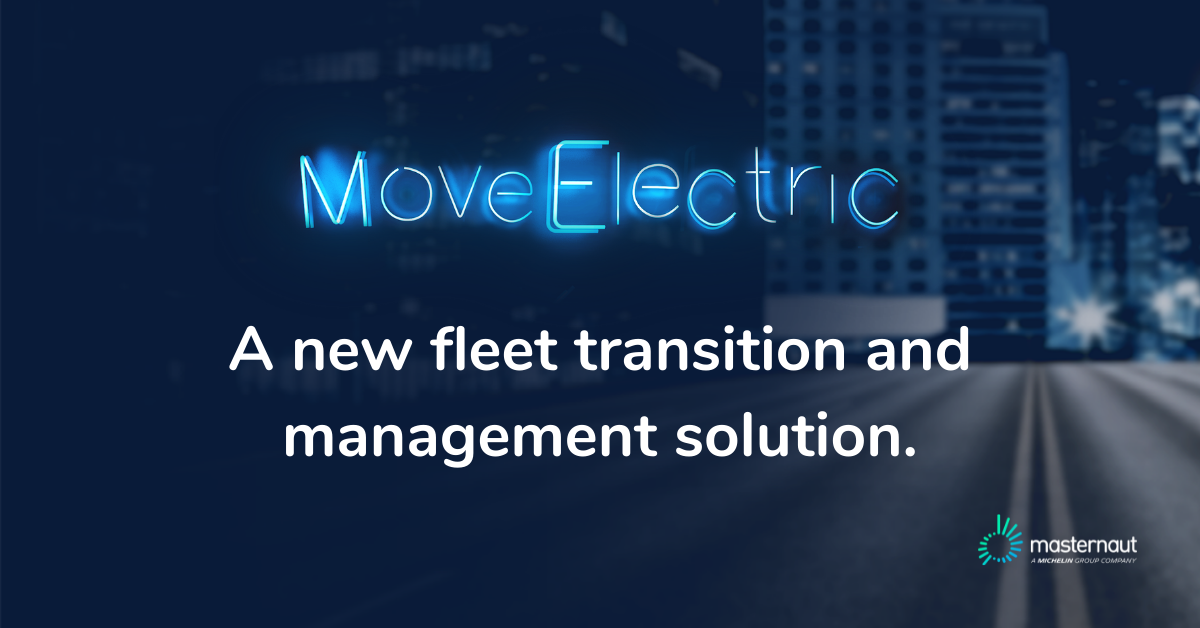
A study shows that 1.6 million vans could go electric today in the UK.
Leading fleet management services and solutions supplier Masternaut, a Michelin Group Company, has today announced the launch of its new MoveElectric solution — to support the management of company fleets as they transition from internal combustion engines (ICE) to electric vehicles (EVs).
Masternaut's MoveElectric transition tool enables fleet managers to identify which journeys could be carried out by an EV instead of an ICE vehicle, based on parameters which reflect business needs and working patterns. Comparing real-time ICE data with that of EVs, businesses can now understand which electric vehicles are most suitable for their fleets.
The MoveElectric tool’s use of comprehensive real-world data allows fleet managers to measure and demonstrate the wider benefits of the move to EVs, including efficiency, CO2 reduction and cost savings. This insight will also support the creation of data-led roadmaps to achieve the government-mandated shift to full electrification by 2030.
The launch of MoveElectric is part of Michelin's Sustainable Development and Mobility strategy. It aims to make Michelin one of the most innovative, responsible, and high-performing companies worldwide across all of its responsibilities: economic, environmental, social and societal.
The impact on today's fleet sector
Masternaut has compiled a year’s worth of data from 37,252 vehicles, to explore the overall potential of where EVs could already provide a workable replacement to ICE vehicles. Specifically, the research used a range limit of 200km per day to assess the suitability to switch to electric. 200km is currently a widely-adopted daily range, although some vehicle manufacturers have recently introduced new electric van models with a 300 km per day range.
Masternaut’s tool has been developed in close consultation with customers to make the transition process as pain-free as possible. Fleet operators expressed a need for a solution which was user-friendly and accurately reflects real-life operations.
The research shows that UK fleet operators could replace 40% of their current light commercial vehicles with electric alternatives today, with daytime charging needed only exceptionally. This transition from ICE fleets to EVs could reduce emissions by 8.3 million tons of CO2 a year, an equivalent to 7% of total CO2 emissions from transport in 2019. This would be a significant drop as CO2 emissions from transport have only gone down by 4.6% over the last 30 years. Making the switch to electric would also enable fleets to reduce fuel costs by 79% on their replaced ICE vehicles.
In London, the percentage of light commercial vehicles that can be electrified is even higher. This supports the fact that the CO2 restrictions from the extension of the Ultra Low Emission Zones planned in October this year can be met and that fleets can progressively move to zero tailpipe emissions.
Alberto De Monte Business Segment Director OEM, EV and Sustainable Mobility at Masternaut said:
“Transitioning to electric is a logistical challenge and our customers need to be able to show the business case before making that change. The MoveElectric platform avoids the need to rely on estimates. Everything is calculated by reading information directly from vehicles currently in use. This allows us to give our customers a highly accurate understanding of what they can achieve without disrupting workflow or efficiency.
“Our research shows that it is already possible to move significant portions of existing fleets to EVs and that ‘range anxiety’ is, in many cases, unfounded. Early fleet planning is essential to realise the opportunities available to fleets and to prepare for the unavoidable deadline of 2030. Fleet operators are unlikely to incur any additional costs when transitioning to electric, as long as they follow the normal vehicle replacement cycle of 4-5 years”.


